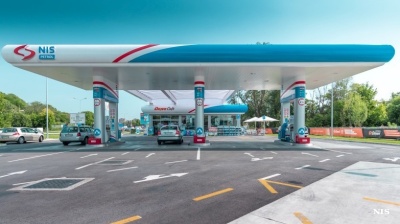Iron ore, coking coal, nickel, palladium group metals (PGMs), as well as corn and wheat are in focus as the commodity markets brace for supply disruptions as a result of the Russian military invasion of Ukraine.
As followed by bne IntelliNews, only hours after the US announced a ban on oil imports from Russia, Russian President Vladimir Putin struck back with counter-sanctions that will ban the export of Russian commodities until the end of 2022. The list of commodities and export destinations will be determined by the government by March 11.
Global commodity prices across the board have already spiked, with many of them setting new all-time highs as the war in Ukraine goes into its second week, with no sign of ending soon.
Sova Capital reminded on March 9 that Russia and Ukraine accounted for a sizeable share of seaborne iron ore markets in 2021, as Ukraine exported 50mn tonnes and Russia 22mn tonnes of iron ore products in 2021.
Over 80% of Russian and almost all Ukrainian iron ore exports go to the Atlantic basin, mainly to European steelmakers. Sova Capital estimates that the European market requires about 165-170mn tonnes per year of iron ore and that Russia and Ukraine together supply 68-70mn tpy of iron ore to the Atlantic basin, accounting for 40% of the European market.
The biggest producer of iron ore in Russia is Metalloinvest. The company estimates its iron ore reserves at 15.4bn tonnes (versus Russia’s total 25bn tonnes), and claims it has second-largest reserves in the world. The company is controlled by Russian billionaire Alisher Usmanov, who is now directly sanctioned by the US and the EU. Usmanov’s stake in USM Group (main shareholder in Metalloinvest) is less than 50%, and technically this exempts Metalloinvest from sanctions. However, short- to medium-term sanction risks for the company remain high.
"A potential disruption in the iron ore supply from Russia and Ukraine – particularly via Black Sea routes and ports – should lead to higher premiums for iron ore contracts in the Atlantic basin," the analysts believe.
Russia also exports about 23-25mn tonnes per year (tpy) of coking coal, mostly supplied to Asian markets (China, Japan and South Korea). "Given the size of the Asian market, the dominant role of Australia's supply of coking coal on it and uninterrupted logistics, we see a low risk of a physical shortage for coking coal," Sova Capital analysts wrote.
As for aluminium, with 3.6mn tpy of primary aluminium output, Russia-based smelters account for 13% of global primary aluminium production (excluding China). The biggest aluminium producer in Russia is United Company Rusal, so far spared by the Western sanctions.
Russia also accounts for 22% of the world's high-grade nickel output, and in 2021 the country produced 2.81mn ounces of palladium and 0.81mn ounces of platinum, accounting for a respective 44% and 15% of the global palladium and platinum supply. The biggest producer of nickel, also investing heavily in PGMs, is Norilsk Nickel.
Previously the analysts of Aton Equity reminded that Russia is also a major supplier of zinc, as well as wheat and corn.
As followed by bne IntelliNews, Russian state-controlled bank VTB has been the main target of the UK and US sanctions in response to Russia's military invasion of Ukraine. In the past few years VTB has been hoovering up assets in the grain export sector and now controls about a fifth of the business, becoming the largest operator of grain infrastructure in the process.
Last month VTB Bank has cut its stake in Demetra Holding, which unites its grain assets, to 45% from the controlling 50% plus one share in order to duck sanctions.
News

Serbia’s NIS posts 9-month net loss as US sanctions weigh on performance
NIS, majority-owned by Russia’s Gazprom Group, said it had operated in “extremely complex circumstances” after sanctions were announced by the US Treasury Department.

Nigeria's Heirs Energies' CFO on powering growth via sustainable, indigenous-led development
NewsBase speaks exclusively to Samuel O. Nwanze, Executive Director and Chief Financial Officer of Nigerian indigenous integrated oil and gas company Heirs Energies.

Brazil's Lula "horrified" as Rio police raid death toll reaches at least 130
Brazilian President Luiz Inácio Lula da Silva expressed shock at the fatalities from a massive police operation targeting Rio drug gangs that left scores dead, while residents and rights advocates accused authorities of summary executions.

Nigeria's NNPCL weighs technical equity partnerships to revive idle state-owned refineries
NNPCL is reviewing options to bring the Port Harcourt, Warri and Kaduna refineries back into meaningful operation, possibly by bringing in technical equity partners to upgrade or repurpose units.



